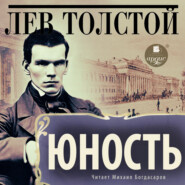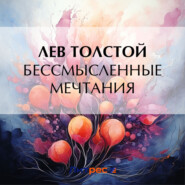По всем вопросам обращайтесь на: info@litportal.ru
(©) 2003-2025.
✖
The Kingdom of God is Within You; What is Art?
Настройки чтения
Размер шрифта
Высота строк
Поля
105
I think there should be nothing but allusions. The contemplation of objects, the flying image of reveries evoked by them, are the song. The Parnassiens state the thing completely, and show it, and thereby lack mystery; they deprive the mind of that delicious joy of imagining that it creates. To name an object is to take three-quarters from the enjoyment of the poem, which consists in the happiness of guessing little by little: to suggest, that is the dream. It is the perfect use of this mystery that constitutes the symbol: little by little, to evoke an object in order to show a state of the soul; or, inversely, to choose an object, and from it to disengage a state of the soul by a series of decipherings.
… If a being of mediocre intelligence and insufficient literary preparation chance to open a book made in this way and pretends to enjoy it, there is a misunderstanding – things must be returned to their places. There should always be an enigma in poetry, and the aim of literature – it has no other – is to evoke objects.
106
It were time also to have done with this famous "theory of obscurity," which the new school have practically raised to the height of a dogma.
107
For translation, see Appendix IV.
108
For translation, see Appendix IV.
109
For translation, see Appendix IV.
110
For translation, see Appendix IV.
111
For translation, see Appendix IV.
112
For translation, see Appendix IV.
113
I do not wish to think any more, except about my mother Mary,
Seat of wisdom and source of pardon,
Also Mother of France, from whom we
Steadfastly expect the honor of our country.
114
This sonnet seems too unintelligible for translation. – Tr.
115
For translation, see Appendix IV.
116
The quicker it goes the longer it lasts.
117
All styles are good except the wearisome style.
118
All styles are good except that which is not understood, or which fails to produce its effect.
119
An apparatus exists by means of which a very sensitive arrow, in dependence on the tension of a muscle of the arm, will indicate the physiological action of music on the nerves and muscles.
120
There is in Moscow a magnificent "Cathedral of our Saviour," erected to commemorate the defeat of the French in the war of 1812. – Tr.
121
"That they may be one; even as thou, Father, art in me, and I in thee, that they also may be in us."
122
In this picture the spectators in the Roman Amphitheater are turning down their thumbs to show that they wish the vanquished gladiator to be killed. – Tr.
123
While offering as examples of art those that seem to me the best, I attach no special importance to my selection; for, besides being insufficiently informed in all branches of art, I belong to the class of people whose taste has, by false training, been perverted. And therefore my old, inured habits may cause me to err, and I may mistake for absolute merit the impression a work produced on me in my youth. My only purpose in mentioning examples of works of this or that class is to make my meaning clearer, and to show how, with my present views, I understand excellence in art in relation to its subject-matter. I must, moreover, mention that I consign my own artistic productions to the category of bad art, excepting the story "God sees the Truth," which seeks a place in the first class, and "The Prisoner of the Caucasus," which belongs to the second.
124
In Russian it is customary to make a distinction between literate and illiterate people, i. e. between those who can and those who cannot read. Literate in this sense does not imply that the man would speak or write correctly. – Tr.
125
The over-man (Uebermensch), in the Nietzschean philosophy, is that superior type of man whom the struggle for existence is to evolve, and who will seek only his own power and pleasure, will know nothing of pity, and will have the right, because he will possess the power, to make ordinary people serve him. – Tr.
126
Stenka Razin was by origin a common Cossack. His brother was hung for a breach of military discipline, and to this event Stenka Razin's hatred of the governing classes has been attributed. He formed a robber band, and subsequently headed a formidable rebellion, declaring himself in favor of freedom for the serfs, religious toleration, and the abolition of taxes. Like the government he opposed, he relied on force, and, though he used it largely in defense of the poor against the rich, he still held to
"The good old rule, the simple plan,
That they should take who have the power,
And they should keep who can."
Like Robin Hood, he is favorably treated in popular legends. – Tr.
127
I think there should be nothing but allusions. The contemplation of objects, the flying image of reveries evoked by them, are the song. The Parnassiens state the thing completely, and show it, and thereby lack mystery; they deprive the mind of that delicious joy of imagining that it creates. To name an object is to take three-quarters from the enjoyment of the poem, which consists in the happiness of guessing little by little: to suggest, that is the dream. It is the perfect use of this mystery that constitutes the symbol: little by little, to evoke an object in order to show a state of the soul; or, inversely, to choose an object, and from it to disengage a state of the soul by a series of decipherings.
… If a being of mediocre intelligence and insufficient literary preparation chance to open a book made in this way and pretends to enjoy it, there is a misunderstanding – things must be returned to their places. There should always be an enigma in poetry, and the aim of literature – it has no other – is to evoke objects.
106
It were time also to have done with this famous "theory of obscurity," which the new school have practically raised to the height of a dogma.
107
For translation, see Appendix IV.
108
For translation, see Appendix IV.
109
For translation, see Appendix IV.
110
For translation, see Appendix IV.
111
For translation, see Appendix IV.
112
For translation, see Appendix IV.
113
I do not wish to think any more, except about my mother Mary,
Seat of wisdom and source of pardon,
Also Mother of France, from whom we
Steadfastly expect the honor of our country.
114
This sonnet seems too unintelligible for translation. – Tr.
115
For translation, see Appendix IV.
116
The quicker it goes the longer it lasts.
117
All styles are good except the wearisome style.
118
All styles are good except that which is not understood, or which fails to produce its effect.
119
An apparatus exists by means of which a very sensitive arrow, in dependence on the tension of a muscle of the arm, will indicate the physiological action of music on the nerves and muscles.
120
There is in Moscow a magnificent "Cathedral of our Saviour," erected to commemorate the defeat of the French in the war of 1812. – Tr.
121
"That they may be one; even as thou, Father, art in me, and I in thee, that they also may be in us."
122
In this picture the spectators in the Roman Amphitheater are turning down their thumbs to show that they wish the vanquished gladiator to be killed. – Tr.
123
While offering as examples of art those that seem to me the best, I attach no special importance to my selection; for, besides being insufficiently informed in all branches of art, I belong to the class of people whose taste has, by false training, been perverted. And therefore my old, inured habits may cause me to err, and I may mistake for absolute merit the impression a work produced on me in my youth. My only purpose in mentioning examples of works of this or that class is to make my meaning clearer, and to show how, with my present views, I understand excellence in art in relation to its subject-matter. I must, moreover, mention that I consign my own artistic productions to the category of bad art, excepting the story "God sees the Truth," which seeks a place in the first class, and "The Prisoner of the Caucasus," which belongs to the second.
124
In Russian it is customary to make a distinction between literate and illiterate people, i. e. between those who can and those who cannot read. Literate in this sense does not imply that the man would speak or write correctly. – Tr.
125
The over-man (Uebermensch), in the Nietzschean philosophy, is that superior type of man whom the struggle for existence is to evolve, and who will seek only his own power and pleasure, will know nothing of pity, and will have the right, because he will possess the power, to make ordinary people serve him. – Tr.
126
Stenka Razin was by origin a common Cossack. His brother was hung for a breach of military discipline, and to this event Stenka Razin's hatred of the governing classes has been attributed. He formed a robber band, and subsequently headed a formidable rebellion, declaring himself in favor of freedom for the serfs, religious toleration, and the abolition of taxes. Like the government he opposed, he relied on force, and, though he used it largely in defense of the poor against the rich, he still held to
"The good old rule, the simple plan,
That they should take who have the power,
And they should keep who can."
Like Robin Hood, he is favorably treated in popular legends. – Tr.
127

















